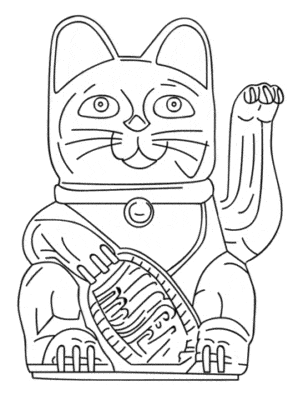
#MemberSpotlight – Personal Branding: It’s Not Enough to Just Do a Good Job Nowadays
Company name: Eo Ipso Communications
Industry: Communication
We’re talking with: Oliver Aust, CEO & Founder
Mindspace location: Mindspace Friedrichstraße, Berlin
1. You are an author and the CEO of Eo Ipso Communications. What came first? The agency, or the urge to write books?
I have always wanted to write books. As a small child, I had an old typewriter from my dad. He brought it back from the office, and I wrote my own newspaper. I always had this idea in the back of my mind that I wanted to write books. I tried a couple of times and failed. Back then, I had this idea that you just sit down and physically write a book. Once I figured out that you can speak a book and get it transcribed by software, it got much easier. And you need to have some experience in your career and expertise to write books that are meaningful and provide value to people.
2. You have been in the communications business for 20 years. What is the craziest work story you can share?
I was at EasyJet for 6 years when it was aggressively expanding across the continent. EasyJet was always very friendly to consumers but aggressive towards incumbents, the monopoly airlines who just wanted to protect their market. One day in Italy, we wanted to fly from Milan to Sardinia, a route we wanted to launch. There is a lot of traffic on this route, so we had sold a lot of tickets. Suddenly, the Italian state told us we couldn’t fly because it was a protected route. This is completely unlawful, and we didn’t accept this. So we had a press conference in the terminal with the CEO and made a big fuss. We said that we will let passengers fly for free because we were banned from selling tickets. The passengers were, of course, all happy and cheering. Then the Italian police came along and told us that we were one minute away from getting arrested. Not wanting to spend the night in an Italian prison cell, we got on the empty aircraft, and flew to Sardinia. The pilot put on the music, and we had a great time. It was a huge PR stunt. We had another press conference in Sardinia, and in the end, we were allowed to fly that route, because the public pressure was too big. It felt very much like pirates against the regular navy. We were buccaneers. It was great fun and nerve-wracking at the same time.
3. Let’s talk about your latest book now. You just published “Unignorable”, already a bestseller. Tell our readers a little bit about what the book is about.
I had the idea for my third book “Unignorable” at the beginning of the year when Corona hit. I looked around, and there were so many great people – friends, family, acquaintances – who were struggling due to the crisis. With our skills in communications and personal branding, we wanted to help them. A book is probably the best way to do that because it is easily accessible and everyone can just pick it up and read it. My idea is that the book can reach 10,000 people and can help them to come out of this crisis stronger. I wrote the book for freelancers, and business owners, but also with people in mind who work in a big company and are thinking about reinventing themselves or making a change. The book is about how anyone can build a personal brand to boost their business or career within just 30 days. The point I am making in the book is that it is no longer good enough to do a good job. I have written this book for people who are already good at their job, and who want to become more visible. So many people are talented, have the skills, and work hard, but still don’t get the recognition of a client or the promotions they deserve. Today, you want to do good work, but you also want to be visible. If you are visible, you can become remarkable, if you are remarkable, you can even become unignorable.
4. When did you realize the need to build your own personal brand and how did you get started for yourself?
When I decided to build my own company, I came across personal branding for the first time. I knew a lot about communication, but only how to apply it to yourself when you are part of a big organization. Then I was on my own and under pressure to make it work quickly because I had to find clients. I decided to focus very much on my own personal brand, so that people would see me as a credible, trusted advisor and not just as someone who has a management position in a big company. And that transition was really interesting.
5. Did you wish for such a book when you were in that situation?
Absolutely! There is a lot of advice about the methods of personal branding out there already, but I am looking at all four Ms in “Unignorable”:
- Motivation: Why do you want to build a personal brand? Understand why you started the process in the first place when you look back in 6 months. Motivation is also not just about what you gain, but also about what you avoid by building a personal brand. Often people ignore the fact that their work needs to be visible and they need to talk about the value they provide, otherwise they get overlooked.
- Mindset: There are things that hold us back. People often say they don’t want to blow their own horn, have nothing to say, or feel what they have to say is not important for their industry. I go through these themes in the book and refute them, or change the way people think about it. The right mindset is very important. If we don’t have the right mindset, we are probably setting ourselves up for failure, or at least are making it way harder than it should be.
- Method: The 30-day method is about finding your individual strategy. I don’t just tell people what to do, which I think is the downside of some of the books out there. Someone is successful, they deconstruct the steps they have taken, and then tell others what to do. But consulting people for many years now, I know that everyone has different needs. You want to focus on the platform that gives you the most love or that you feel the most at home with. You choose the tactics and the strategies that actually work for you. It is not a one size fits all.
- Message: This part is about knowing exactly which problem to solve and for whom. And why would they care about it. Be very clear about the message, repeat it, stick to it, and put it out there with confidence. Always make the message about the value you provide to other people rather than promoting yourself. Don’t expect anything in return. It is not about chasing big audiences. It is very much about identifying maybe 100 people who are relevant to you as a business and coming close to them, supporting them. And good things will happen in return
6. What’s your advice to people who are introverted and shy away from personal branding?
It doesn’t matter if someone is an introvert or an extrovert, you just have to find the right tools and tactics. There are a lot of great introverts out there who have strong brands and a strong presence. Think about what format you like, maybe writing a blog and putting that out for social media and newsletters is more in line with who you are. And maybe videos or being on the stage isn’t the right thing for you. Whatever your strength is, whatever your genius zone is, use that to your advantage. Be very authentic. Don’t try to be someone else. Inspiration is great, but at the end of the day, everyone is taken except for you. Authenticity leads to uniqueness, and uniqueness leads to attention. Most people see through inauthenticity. Even if you are successful, what do you achieve? You attract the wrong people and the wrong opportunities.
7. Personal branding is a lot about social media presence. Personally, which one is your favorite social network?
For me, that is probably LinkedIn. Because that’s where B2B is. And LinkedIn is not nasty, it is more factual and positive. Instagram is a natural fit for me too because it is very visual.
8. After leaving EasyJet, you founded your own agency. Tell us a bit more about Eo Ipso.
About 10 years ago, when the world came out of the last recession, I left EasyJet when there was a big management shakeup. And I thought about what to do next. I could have gone for another corporate job, but I wanted to be my own boss. I decided to go to Berlin because the city was up and coming at that time. London was very saturated, and I had learned a lot and thought that I could bring that international angle to Germany.
9. Why did you choose Mindspace when you came to Berlin?
We chose Mindspace when we came to Berlin because of all the opportunities it offers for a company like Eo Ipso. Its central locations and the beautiful spaces allow us to be in close proximity to our clients, whilst being able to host meetings here. We love the Mindspace community, learning from them every day, whilst hoping to support them where we can.
10. Who are your customers?
We have a range of customers from different sectors. We work with very large companies and also quite small startups. We like to be a bridge-builder between those two. Startups are often very agile and energetic. But they often don’t quite understand communication or don’t have anyone to look after communication. The corporate side has the resources, the experience, and the specialists in house. But they often lack agility. All too often things don’t move forward as quickly, corporates often play it very safe. That makes communication often quite boring. Understandable, when you are stock market listed. If you combine the strength of the two, then you have a very effective communication strategy.
11. The Corona crisis has impacted all our lives, have you noticed changes in requests coming from customers?
There is more emphasis on crisis communication, especially in the first half of this year. Naturally, because people had to adjust. Now there is more focus on internal communication because you need to keep your people motivated. How do you keep your best talent when there are little security and very little you can offer in terms of prospects like pay rises. The usual instruments are not available at the moment in many companies. How do you motivate people when everybody works hybrid or partly remote, and teams don’t really come together anymore? Internal communication has definitely seen an upswing in terms of interest. Reputation is still very important for big companies because everyone is under pressure, but there is way less classical PR work, it is more digital now.
12. How do you plan your day with all the things you have on your plate?
I am organized and disciplined. I don’t usually work after 7 PM and not much on weekends. I am not putting in extreme hours, because there are only so many productive hours in any day. After that, you are just going through the motions, but you are not really putting out your best work. I always ask myself before I start working on something: “What would it look like if it were easy?”. I focus my limited resources on what has the biggest impact. And I have a fantastic team – that is an even more important factor. Without them, I couldn’t do any of this. It is a team effort.
13. What’s the most surprising fact about you as a person?
People don’t expect that I am a vegetarian. I am actually a co-founder of a vegan company, called GoalVegans. We started a couple of months ago with my niece and a friend. My niece was German bodybuilding Junior Champion last year – as a vegan athlete. We are developing clean protein products. This is usually something people don’t expect, not just nutrition-wise, but also that I went down the rabbit hole and co-founded a vegan company.







